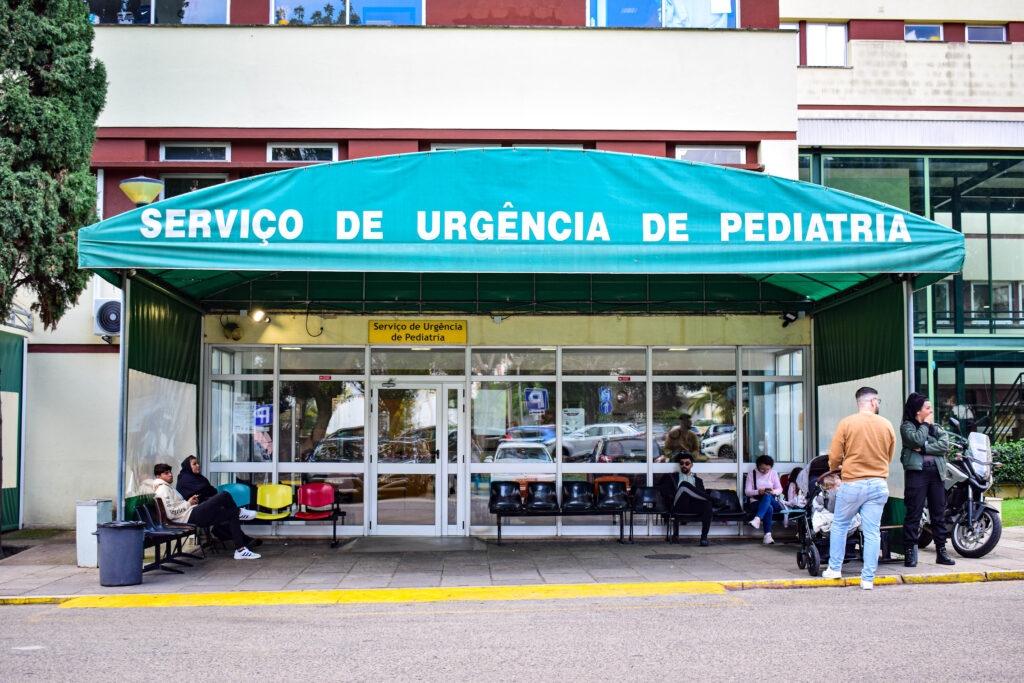The operating scheme for pediatric night emergencies at Hospital Amadora/Sintra, which only accepts children referred by INEM or the SNS24, will be extended to other units, announced the Executive Directorate of the National Health Service (DE-SNS).
In the note accompanying the operational map of pediatric emergencies, whose scheme DE-SNS decided to maintain until the end of April, the Executive Board says that the referenced emergency experience carried out in the first quarter had a "positive impact on users, families and teams of professionals” and “should be extended to other SNS institutions”.
It also points out the need to maintain «the principles of concentration of resources» and the «strengthening of networking», highlighting the positive evaluation of the reorientation project for patients with non-urgent acute illnesses taking place at the Local Health Unit (ULS) Póvoa do Varzim/Vila do Conde and which was extended to ULS Gaia/Espinho and Entre Douro e Vouga.
This project aimed to remove cases that are not considered urgent (green and blue bracelets) from emergencies, scheduling appointments for these users within 24 hours of contact with the SNS24 service.
In the area of pediatrics, the map defined by DE-SNS maintains 29 of the 37 pediatric emergencies operating uninterruptedly, seven with break periods and one operating with referral periods (Amadora-Sintra).
In Alentejo, three pediatric emergencies will always be open and in the Algarve at least one of the emergency centers (Faro/Portimão) will always be open.
The map, which maintains at least until the end of April the scheme defined for the 1st quarter of the year, indicates that, in the North region, 11 pediatric emergency rooms will operate uninterruptedly and in the Central region six pediatric emergency rooms will always be open and two will have break periods (ULS Dão-Lafões, which closes at the weekend, and ULS Leiria, which closes at the weekend every 15 days).
In Lisbon and Vale do Tejo, eight pediatric emergencies will always be open, one will only operate with referrals for part of the day (Amadora-Sintra, at night) and five will be closed during certain periods, due to a lack of doctors.
The five most affected by the lack of health professionals in Lisbon and Vale do Tejo are ULS Loures, which closes at night during the week and on Fridays, Saturdays and Sundays, ULS Lisboa Oeste and Almada-Seixal, which always close at night, ULS Arco Ribeirinho (Barreiro), which closes every other week, and ULS Arrábida (Setúbal), which will be closed every other week between Thursday and Sunday.
To ensure the predictability and safety of the operation of pediatric emergencies, measures are defined in several plans, from the development of campaigns to encourage the use of the SNS24 line to the creation of “new protocols and decision algorithms” for this service line.
In pediatric emergencies, DE-SNS once again draws attention to the need to retain pediatric specialists and interns, develop projects for dedicated teams, namely through Integrated Responsibility Centers (CRI), and optimize inter-hospital transport.
He also points out the need for responses “that are not fixed, but that vary with demand and the seasonality of pathologies, with a greater impact in the winter period”.
In the area of Primary Health Care (PHC), it highlights the importance of family health teams having the capacity for unscheduled care, in the context of acute illnesses in newborns, children and adolescents, through the reinforcement of resources and the organization of care.
As for the National Institute of Medical Emergency, DE-SNS insists on the need to increase literacy in the use of 112, integrating changes to the network in the algorithms for activating INEM means to improve the response to urgent/emergent cases.
In the case of hospital consultations for acute illnesses, it highlights the need for measures to reinforce the outpatient response to exacerbations of chronic patients.



















Comments